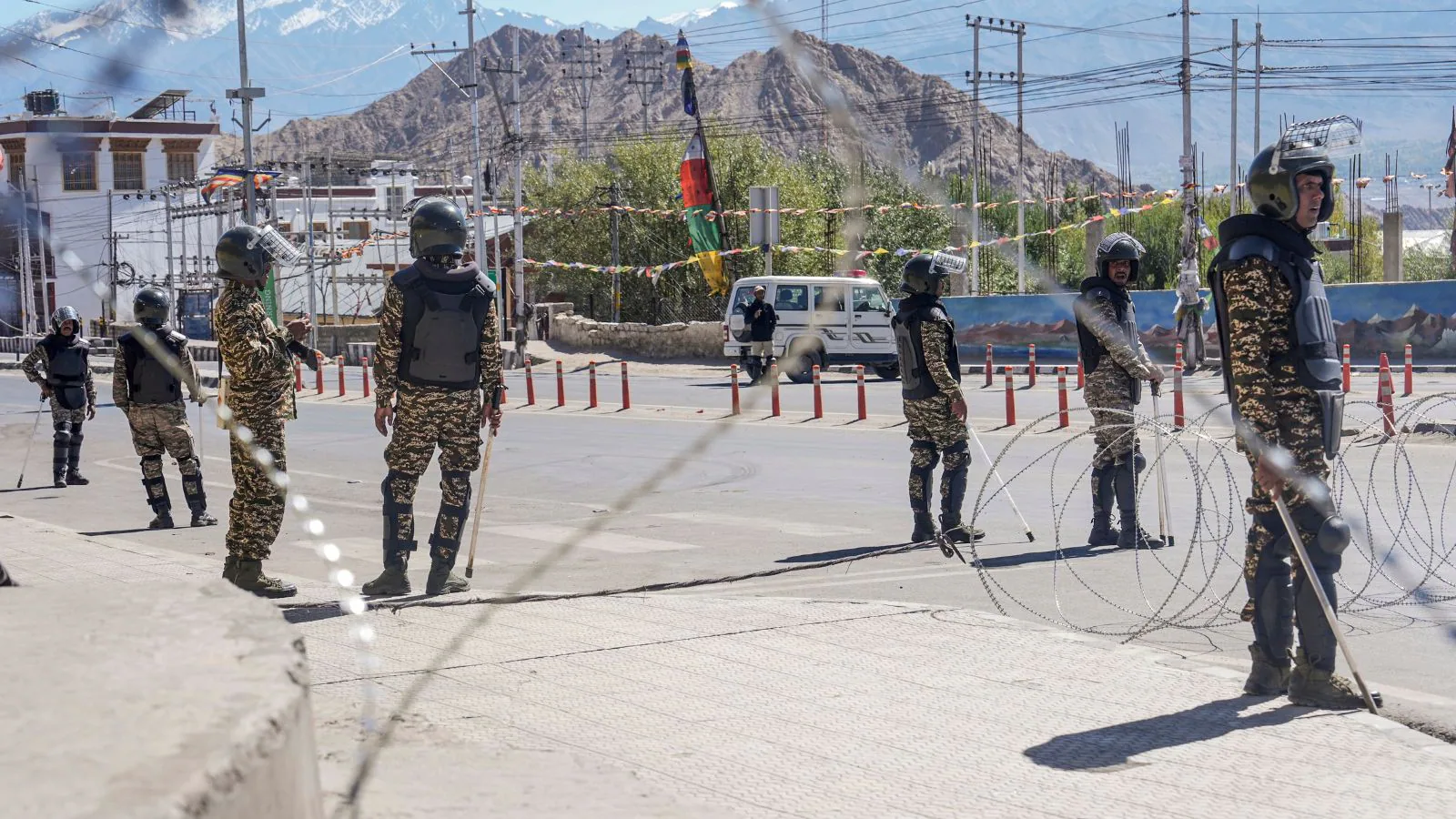Right Word | From Ladakh To Manipur: Challenges In Border Regions Demand A National Awakening
By Arun Anand,News18
Copyright news18

The recent unrest in Leh that resulted in massive mob violence has brought an important issue to the fore — security of the border areas and threats posed to them not only from the enemy across the border but also from within.
Over the last five decades, we have seen deliberate attempts to create tensions and carry out subversive activities in the bordering states of India such as Assam, Punjab, Jammu and Kashmir, many north-eastern states, West Bengal. The cross-border support to such activities is well-known.
The latest additions to this list over the last few years have been Manipur and now Leh in the union territory of Ladakh. During ‘Operation Sindoor’ also, the residents of border areas in Jammu and Kashmir faced casualties and loss of property due to indiscriminate shelling by Pakistan Army from across the border violating international norms.
That brings us to the larger issue of ‘border management’ in India and also raises the question: “Is border management only an administrative task or duty of the government? Or, does society also have to play an important role in this?”
India has 15,106.7 km of land border and a coastline of 7,516.6 km including island territories. The length of our land borders with neighbouring countries is: Bangladesh (4,096.7 km) China (3,488 km), Pakistan (3,323 km) Nepal (1,751 (km), Myanmar (1,643 km), Bhutan (699 km), and Afghanistan (106 km). India shares a maritime border with Sri Lanka and the Maldives.
It is important to mention here that a fact that is hardly discussed in the public domain is that India shares a 106 km long border with Afghanistan. This is part of the “Wakhan Corridor” and is currently part of the Pakistan-occupied Jammu and Kashmir (PoJK)
Seema Jagaran Manch
The Rashtriya Swayamsevak Sangh (RSS) has taken an interesting initiative in this regard that is worth discussing. After all, it reflects on the role that civil society can play for the fellow Indians in border areas who not only live in challenging circumstances but also act as a buffer for the mainland population.
The RSS volunteers had set up Seema Jagaran Manch in 1985 in Jaisalmer, Rajasthan. The organisation plays an important role in helping authorities as well as local communities specifically focusing on border areas. Their area of work is focused on community development and border security.
Seema Jagaran Manch has already reached all the frontline villages of strategic importance covering states such as Gujarat, Himachal Pradesh, Uttarakhand, Uttar Pradesh, Bihar and Delhi.
Seemant Chetna Manch, an offshoot of Seema Jagaran Manch, works in the North East states of Assam, Manipur, Meghalaya, Mizoram, Tripura, Nagaland, Arunachal Pradesh, and Sikkim, along with West Bengal and Odisha.
Seemajan Kalyan Samiti, another offshoot of the Manch, works in Jammu and Kashmir, Ladakh and Rajasthan. Similarly, Sarhadi Lok Seva Samiti is active in Punjab. Sagariya Seema Manch is focused on Maharashtra and Goa, while Bhartiya Matsya Pravartak Sangh is active in Kerala. Karavali Kalyan Parishad operated in Karnataka and Matsyakar Samakshem Samiti in Andhra Pradesh. Samudra Bharti has been active in Tamil Nadu.
All these organisations are an offshoot of Seema Jagaran Manch which itself is inspired by the RSS. The Manch is trying to create awareness in various non-border areas about the significance of supporting the authorities as well as our people who live near the border
An editorial in Seema Sanghosh, a unique journal that covers border-related issues and is brought out by Seema Jagaran Manch, recently raised the issue of apathy of the general population towards our border areas: “We have never shown the same awareness about border security or border residents as we show on other issues. We hardly discuss these important issues related to the security of the country.”
“In our daily life, we are concerned about politics, movies, new iPhone models, holidays abroad, but we hardly talk about the challenges faced by our citizens living in the border areas. National security is not merely a matter for the forces — we should also understand the acuteness of this issue. The desolation of border villages, the encroachment of the frontier, the cunning tricks of the enemy country, and the least-known parts of the land are not as close to us as they should be,” read this editorial.
According to the Manch, it is important for India as a nation to recognise the unwavering devotion of people living in border areas to the country despite adverse conditions. These ‘peripheral citizens’ sacrifice their lives in defence of the country.
While the Modi government’s proactive approach in turning the ‘last village’ at the border into the ‘first village’ and undertaking development projects in these areas on an unprecedented scale has brought a sea change in the issue of border management, this task cannot be left to the government alone. The society too has a role to play in securing our border areas as well as ensuring the welfare of the residents there and that too round the year. So far, we as society tend to discuss our border areas only when a major incident happens that makes headlines in the news media.
The writer is an author and columnist. His X handle is @ArunAnandLive. Views expressed are personal and do not necessarily reflect News18’s editorial stance.